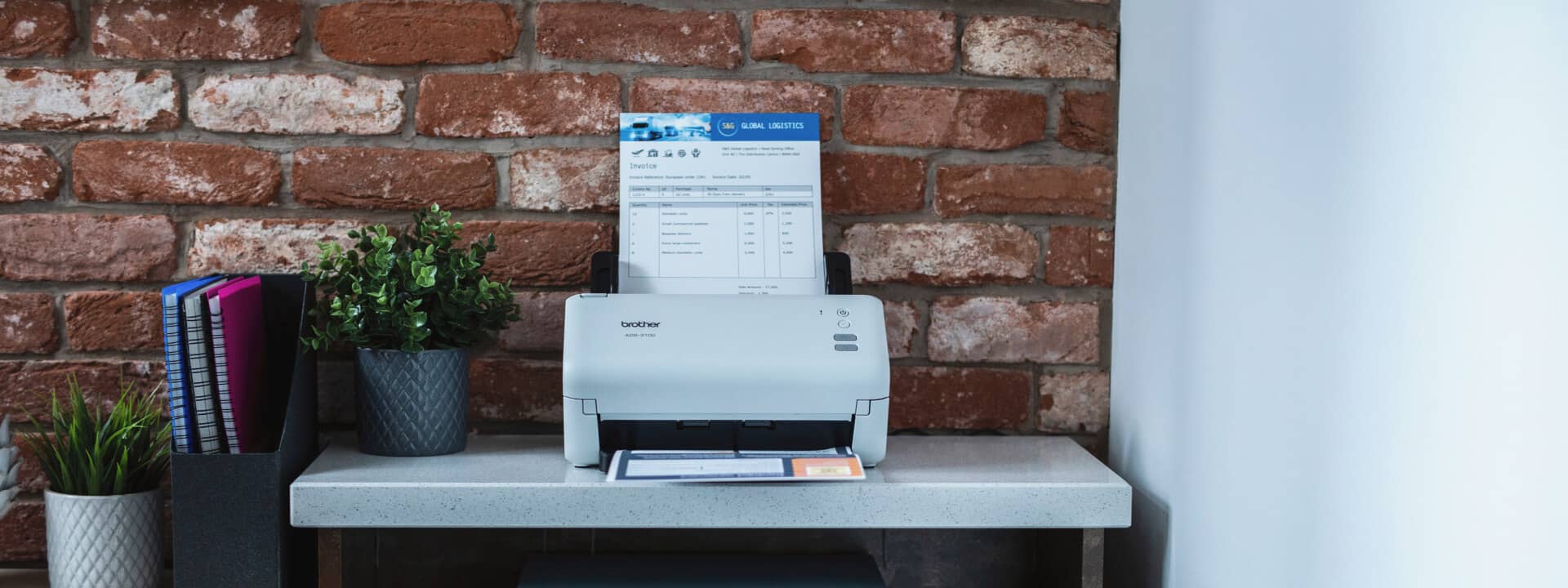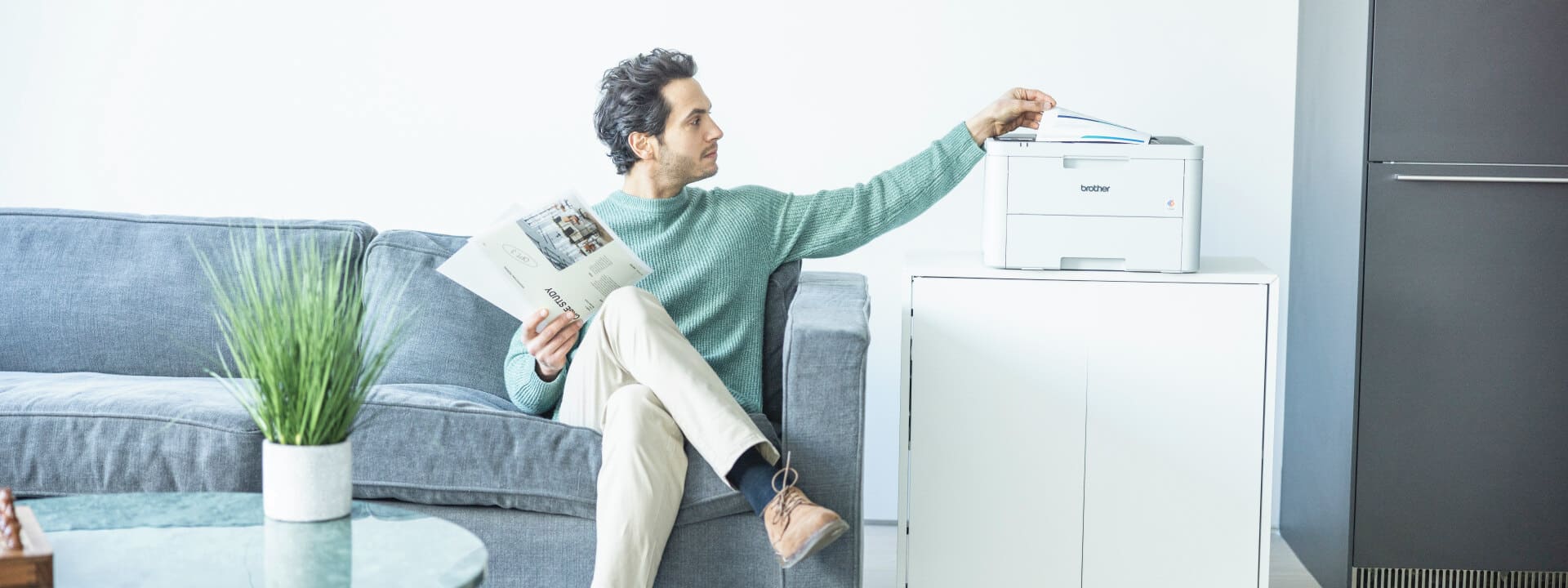Short on space? Five tips to create the perfect study nook
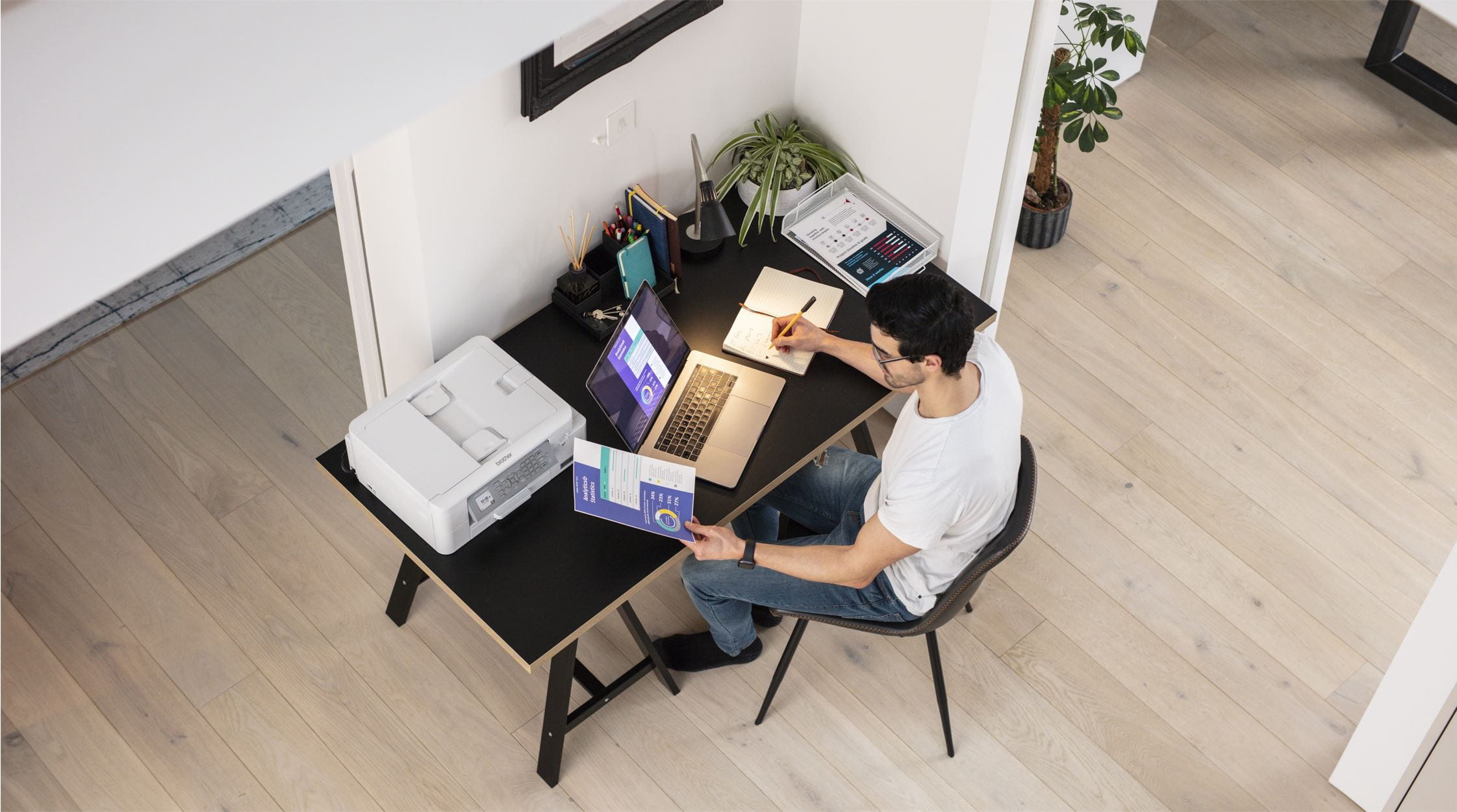
A study nook might be small in size, but it can be mighty in functionality.
While a home office or study is a common fixture in more traditional homes, the study nook is steadily growing in popularity thanks to the fact they need much less space and can be created almost anywhere in the home.
“Even with minimal space, you can carve out a dedicated work area for yourself, which will help put you in a work mindset and keep you productive and positive,” says Dorothy McDonald, Senior Manager, People & Corporate Support at Brother International Australia.
From voids to landings, the cupboard beneath the stairs or setting up in a corner of a room – all you need for your own distinct work zone is a spot of space and these easy ideas.
1. Location, location, location
Find a space that works for you. That means finding a place where you’ll be comfortable and which will be conducive to productivity. If you need quiet, find a low-traffic area like the guest bedroom or end of a hallway. If you regularly need privacy, seek out a secure indoor/outdoor room or somewhere that has a door you can close.
Equally important is determining which spaces to exclude. Avoid areas with poor lighting and no ventilation and ensure the surrounding space is free of clutter. If possible, avoid the bedroom as a location for your study nook. This way, your bedroom stays as a haven for relaxation and is work free.
2. Set up for success
To set a study nook up for success you’ll need a desk, chair, power and connectivity.
If your space is a tricky shape or size, going for a build-in needn’t blow the budget as companies like Table And Desk will create bespoke ergonomic pieces for a fraction of the usual custom cost.
It’s also important to make sure your desk and chair have ergonomics in mind and are tailored to you. The general rule is to make sure your forearms rest parallel to the ground and your feet are flat on the floor. Make sure your elbows sit at a 45-degree angle above the desk too.
Having the correct chair is also key to preventing issues with your neck, shoulders and back.
And there’s good evidence to show that a cleverly considered environment, designed with your needs in mind (so everything you need is within reach and clutter is kept to a minimum), increases productivity and helps you avoid procrastination.
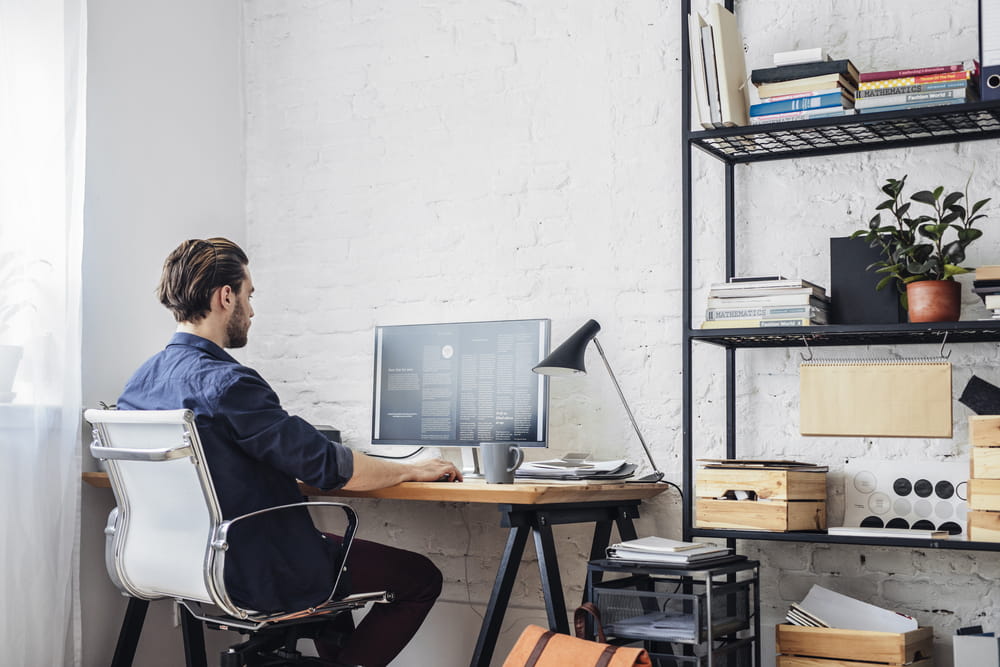
3. Stay connected
Making sure your nook isn’t in a mobile or Wi-Fi dead spot is as easy as checking the bars on your phone and running a speed test on your computer or laptop in your desired spot.
Need faster internet? If you’re already on top tier NBN you could try disconnecting all non-essential devices and ask family members to limit online entertainment during business hours for an extra boost.
4. Must-have tools and tech
You don’t need to spend big to give your nook an edge, but it’s worth considering a few extras to add comfort and enhance your work performance.
For example, a pair of noise-cancelling headphones are great for blocking out distractions. Smart bulbs are also a good investment to optimise light and reduce eye strain while a Wi-Fi extender can add more power to your home’s wireless network. And of course, a fast, reliable printer, like the Brother INKvestment range, can be incredibly convenient.
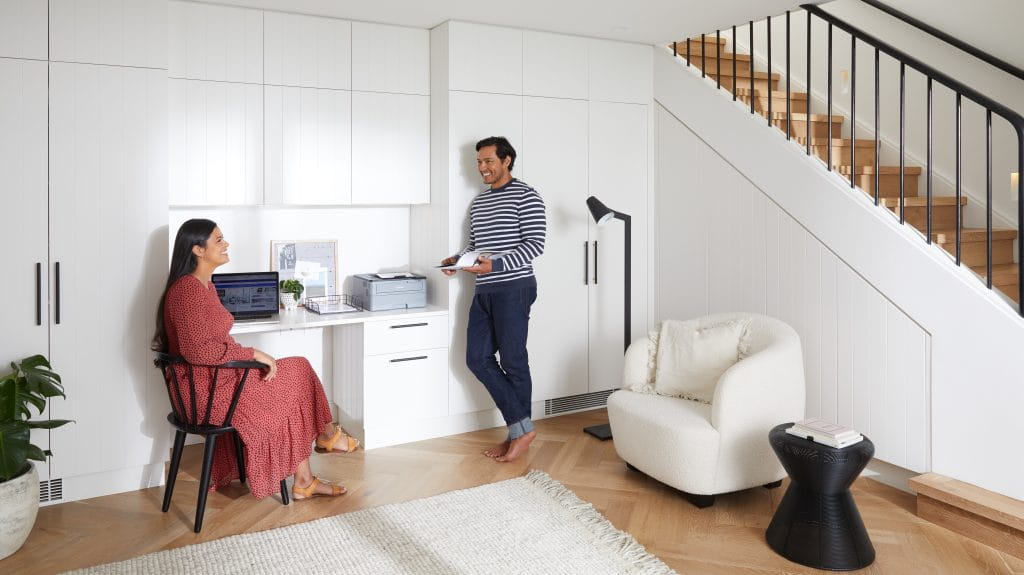
5. How can my employer help?
There are ways employers can help staff working from home too, says Dorothy McDonald, Senior Manager, People & Corporate Support at Brother International Australia. “At Brother, we make a concerted effort to support employee wellbeing in remote working environments,” she says.
“Some ways we’ve done this include ensuring our teams have the right equipment to be able to work from home effectively via free ergonomic workspace consultations and setting clear expectations around hours so work doesn’t leach into after hours. We’ve also actively engaged in providing digital collaboration workshops to ensure they remain happy, connected and productive while physically apart.”
As many organisations continue to introduce hybrid working practices and work-from-home flexibility, ensuring you
have a proper working from home set-up is important for both employees and employers to boost productivity and keep
staff happy and healthy
For employers looking for advice on coordinating a remote workforce, be sure to check out
our article on managing employees working from home.

Resource Library
Be the first to receive exclusive offers and the latest news on our products and services directly in your inbox



